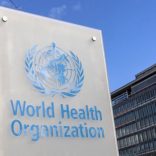Kenyan vendor shot by police during protests dies after life support switched off
Africa overwhelmed by ‘triple disease burden’ – AU

File photo
Africa is being overwhelmed by a triple burden of disease, namely, communicable diseases such as HIV/AIDS, tuberculosis and malaria, non-communicable ones, injuries and trauma, the AU warned in a statement over the weekend. Public health events like the West Africa Ebola Virus Disease outbreak, which claimed over 11,000 African lives (2014-2016), cholera epidemics, which have affected southern, central, and eastern Africa in recent years, and other natural disasters, such as a devastating mudslide in Sierra Leone, in which over 1000 people died (2017), are pressing concerns, the continental body said
“In the first three months of 2018, 43 ongoing outbreaks occurring on the African continent have been reported by the World Health Organization. In 2016, over 1 million new HIV infections were diagnosed in Africa.” the pan African organization said.
Each of these diseases or events impact significant numbers of Africans, have the potential to reverse fragile economic gains (the Ebola outbreak resulted in $2.2 billion in gross domestic product losses for Guinea, Liberia, and Sierra Leone), and may ultimately become global security threats.
“Globally, the emergence and re-emergence of infectious diseases with pandemic potential is gaining widespread attention. Over the past three and half decades, at least 30 new infectious agents affecting humans have emerged, most of which are zoonotic” it said.
The origins of these agents have been shown to correlate significantly with socioeconomic, environmental, and ecological factors, particularly trends in urbanization and population growth it added.
Africa’s population is expected to increase from 1.2 billion to 2.4 billion people by 2050.
Additionally, the widespread use of medications has created an enormous threat due to emerging antimicrobial resistance, the AU said.
AU’s Agenda 2063 emphasizes the need to view health as a development issue if the continent is to prosper and achieve its objective (Aspiration 1, Goal 3) that citizens are healthy, well-nourished and have long lives.
The Africa Health Strategy (AHS 2016-2030), an overarching framework that guides member state implementation of health policies, highlights Africa Centre for Disease Control and Prevention role in disease prevention, surveillance, emergency preparedness and response.
The AU Special Summit on HIV, TB and Malaria, which was held in Abuja in July 2013, took cognizance of the need for an Africa Centre for Disease Control and Prevention (Africa CDC) to conduct life-saving research on priority health problems in Africa, and serve as a platform to share knowledge and build capacity in responding to public health emergencies and threats.
The establishment of Africa CDC Regional Collaborating Centres in Central, Eastern, and Southern Africa progressed substantially during 2017, the statement added.













Leave a Reply
Be the First to Comment!
You must be logged in to post a comment.
You must be logged in to post a comment.